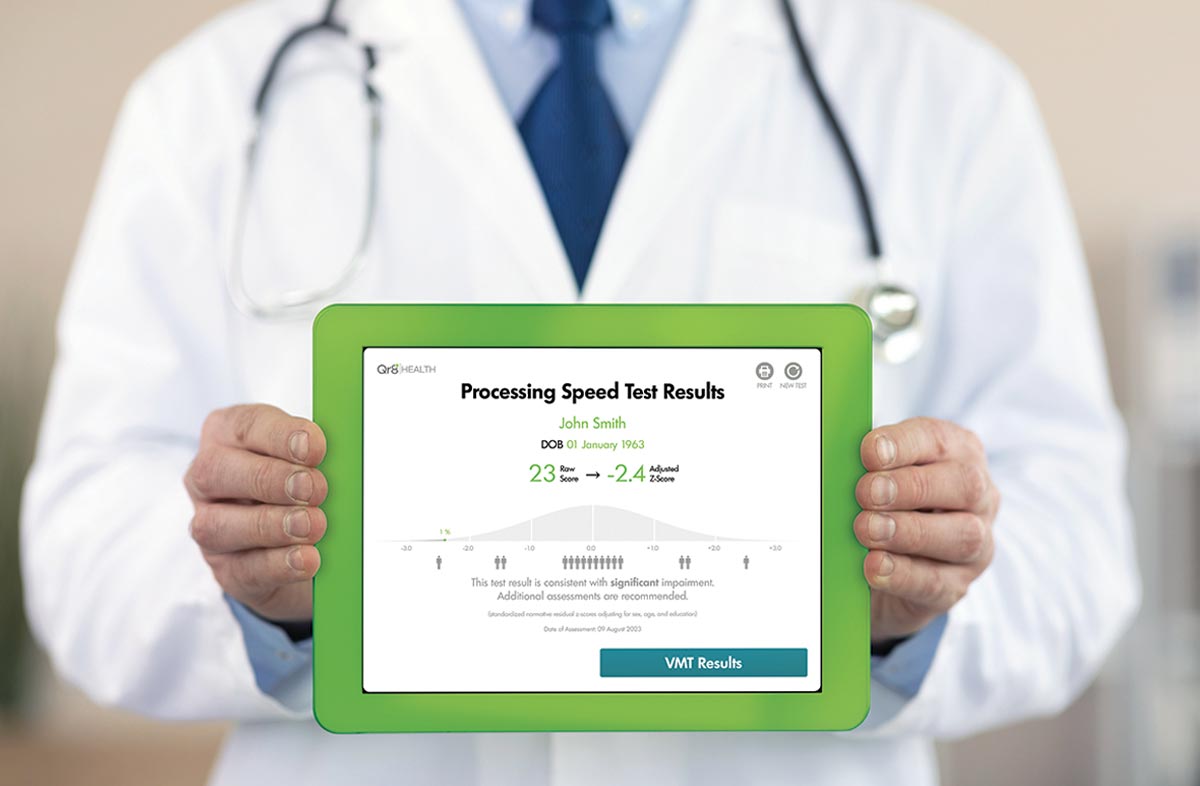Studies reveal that while 16-19% of patients age 65 and above are afflicted with dementia, a staggering 76% remain undiagnosed. This alarming gap points to a critical need for earlier detection of cognitive impairment and underscores the pivotal role regular cognitive assessment can play in improving patient outcomes.
By incorporating cognitive assessments into routine healthcare screenings, physicians can establish baseline cognitive function, identify and treat reversible causes, and monitor for early signs of decline.
But how do existing methodologies stack up against this imperative? Here’s what we found.
Cognitive Comparison Matrix

The Cognition Suite Difference
Comparing various cognitive assessment tools, Qr8 Cognition Suite offers unique advantages. Unlike existing paper-and-pencil tests, it allows patients to guide themselves through assessments, reducing the need for highly trained technicians and minimizing staff administration time.
Cognition Suite:
- standardizes assessments, eliminating the variation that can occur among different administrators;
- normalizes scores against people of similar age, education, and other demographics, providing context to the results; and
- qualifies for reimbursement.
With its sensitivity to both mild cognitive impairment (MCI) and dementia, along with features like automated scoring and EHR integration, Cognition Suite provides a comprehensive and efficient solution for primary care practices.
Final Thoughts
Adopting new technologies presents an exciting opportunity for practices interested in elevating patient care while streamlining processes and maximizing revenue.
That’s where the Cognition Suite stands out.
If you’re curious about how Cognition Suite compares to your current evaluation tool, contact us for a demo and discover the future of cognitive assessment firsthand.






